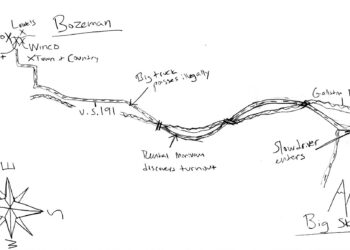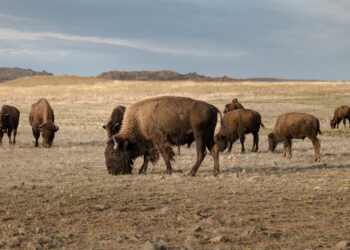Why metabolic health matters more than ever
By Kaley Burns EBS COLUMNIST
Living in the mountains offers many natural advantages—clean air, slower rhythms and a deep connection to the outdoors. But even in this ideal setting, one essential pillar of wellbeing often goes overlooked: metabolic health.
While many associate metabolism with weight, it’s actually a much broader system that governs how our bodies create and use energy. It impacts blood sugar regulation, hormone balance, inflammation, mood and long-term resilience. In short, your metabolic health is a foundation for your overall vitality—especially in the unique demands of mountain living, where altitude, dryness and physical activity all influence health on a deeper level.
Metabolic dysfunction is a quiet crisis. Across the country—and increasingly in active, health-conscious communities—conditions like type two diabetes, fatty liver disease, insulin resistance and hormonal imbalances are rising. What’s more, these issues often develop silently. Many people who appear outwardly fit can still be metabolically unhealthy.
Metabolic dysfunction is linked to a wide range of issues: low energy and fatigue; brain fog, mood swings, and anxiety; hormonal imbalances including PCOS and thyroid issues; chronic inflammation and pain; sleep disturbances and slower recovery from stress or physical activity.
These are not just physical symptoms—they’re signals of imbalance across body systems.
A holistic, mountain-based approach to metabolic health
Living in the mountains allows us to be in closer touch with our bodies and the natural world—making it the perfect environment to take a holistic approach to metabolic wellness. Here’s how to integrate modern science with time-tested healing practices.
First, prioritize nutrition that grounds and sustains. Choose whole, nutrient-dense foods that support blood sugar balance and long-term energy. Examples include local, seasonal vegetables rich in fiber; clean proteins from plan or animal sources; healthy fats from nuts, seeds, avocados and oils; and complex carbohydrates like sweet potatoes, lentils or ancient grains.
Also, avoid ultra-processed foods and refined sugars, which spike blood sugar and lead to energy crashes.
Second, consider acupuncture for internal balance. Acupuncture helps regulate the nervous system, reduce inflammation, and support organ function—including the pancreas, liver, and adrenal glands, all of which play central roles in metabolic regulation. It can also calm stress and improve digestion, both key components of healthy metabolism.
Third, implement bodywork to support circulation and detoxification. Therapeutic bodywork—such as massage, craniosacral therapy or myofascial release—improves lymphatic flow, reduces cortisol levels, and helps release stored tension. This allows the body to function more efficiently and can enhance insulin sensitivity, especially when combined with regular movement.
Fourth, try IV therapy for cellular health. At higher altitudes or during seasonal transitions, the body may need extra support. IV nutrient therapy can deliver targeted vitamins, minerals and antioxidants directly to the bloodstream—supporting mitochondrial function, reducing inflammation and replenishing deficiencies that may be impacting metabolism.
Fifth, add movement in nature. Daily movement—especially hiking, walking or skiing—stimulates glucose uptake in muscles and improves insulin sensitivity. Even gentle, consistent movement like yoga or breath-based exercise can have a profound impact on metabolic health, especially when practiced outdoors in natural light.
Finally, focus on deep rest and sleep hygiene. Altitude, blue light exposure and stress can all impact sleep quality. Establish a calming evening ritual: herbal tea, screen-free time, light stretching and a cool, dark room. Consistent, quality sleep is one of the most effective—and underappreciated—metabolic tools.
Here’s why this matters in holistic mountain living.
When we think of holistic health, we often think of alignment—of systems working together in harmony. Metabolic health is a central thread in that tapestry. It doesn’t just prevent disease; it enhances your energy, your mental clarity, your emotional resilience, and your ability to thrive in the environment you’ve chosen to call home.
Metabolic health is not just a medical concept—it’s a holistic foundation. And here in the mountains, we have both the space and the wisdom to approach it with care.
Dr. Kaley Burns is a licensed Naturopathic Physician providing a wide range of services for her clients, including: Naturopathic Medicine, IV Nutrient Therapy, Regenerative Injections, Rejuvenation Therapies, Vitamin Shots, and Nutrition Counseling. She embraces a natural approach to health and aims to similarly inspire and guide others on their health journey.













